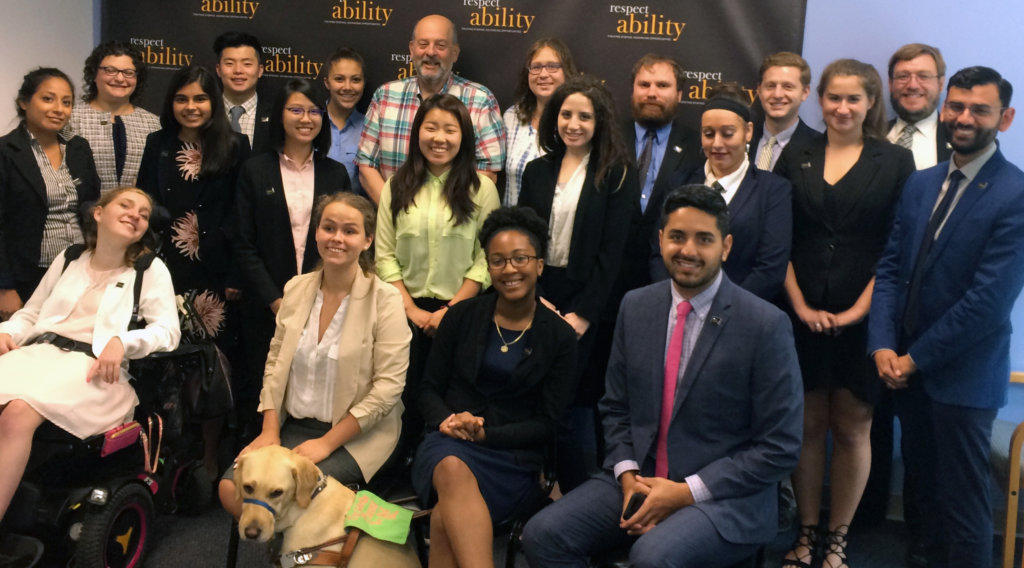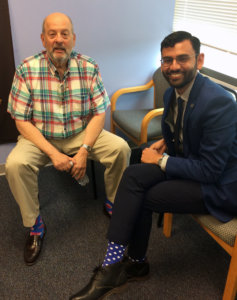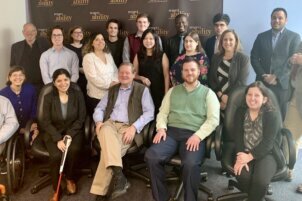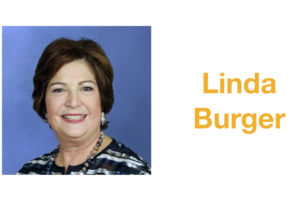A conversation with Professor Steven Eidelman on the sheltered workshops movement, the value of work and the importance of enforcing the rights for people with disabilities
Rockville, Md., Sept. 8 – “What do you do?” Professor Steven Eidelman identifies this as one of first questions many of us Americans ask or get asked when we meet a person for the first time. He links this question to the way we define work in our country and how it affects the way we view others, especially those with disabilities.
People who work contribute and find meaning in life; unfortunately, not all people work in America, he said. Eidelman’s impassioning spirit encouraged RespectAbility Fellows to step up as advocates as he talked about the journey of workforce integration for people with disabilities. It is a journey that he has witnessed and participated in throughout his life that has yet to achieve full integration.
Eidelman recalled an experience when he was in high school and worked for a drug store in Pikesville, Maryland. This drug store was right near a state institution called Rosewood, which was for people with what they used to call mental retardation. He remembers occasions when the Rosewood residents would go to the drug store on weekends to use their spending money, pick up a burger and then take a bus back to Rosewood.
Eidelman found this process unsettling. Rosewood just closed eight years ago and many other institutions have closed, some of which Eidelman helped close. Institutions in America have gone down. In 2014 there were 24,000 people with developmental disabilities in institutions, compared to 170,000 at the highest point.
Eidelman majored in American studies and economics as an undergraduate. However he found a fascination for social work upon taking a course in the field. This led him to pursue a master’s degree in social work. Fast-forward, he ended up working with individuals with significant disabilities at Johns Hopkins for six years while pursuing an MBA along the way. This led him to make many contributions in policy and he continues to work in research, advocacy and policy. Currently he focuses on program and leadership development while teaching at the University of Delaware.
“We may disagree about politics, religion, sports and healthcare, but we don’t have disagreements about the value of work,” said Eidelman.
Eidelman explained that in terms of social capital and social status, working is what is important in this country. However, there are many things that do not make sense when getting people to work.
Eidelman believes that a main problem is in education and lack of integration. People should not have an option to go into sheltered workshops. Sheltered workshops started with an idea to train people for employment. However, it has become a permanent thing where individuals get subminimum wage and don’t have much to do.
Eidelman said sheltered workshops are more of a formal respite center, and made a connection to the Eagles song, Hotel California.
“There’s places you go in but you never get out of,” he said, “This is what a shelter workshop is, when you get out it might be too late to get a job.”
“The law is way ahead of where we are culturally.” – Eidelman
Eidelman explained that remarkable legislation has been enacted for people with disabilities, however, they’re not fully enforced. We know what we have to do, we know what works, yet there are not enough services, there are things that do not make sense. People have to fear substantial gainful activity, segregated employment is high, and we are not bringing out the potential in individuals, he said.
He stressed that so much has to be done and we need the right person to stand up and enforce what is right, but he does not see this happening anytime soon.
“People with disabilities are an untapped resource that companies are beginning to realize,” he said.
He still can remember going into Rosewood 40 years ago and seeing 20 cribs with patients with hydrocephaly who had enlarged heads, all which only had one staff member attending them. He still can hear the terrible screams and smell that came out of the room.
We have broken out of institution’s cruel practices, he said, but we still have a lot of work to do with sheltered workshops, segregated employment and enforcement of equitable practices in our country.
Eidelman believes this can be accomplished through: “Advocacy, Advocacy, Advocacy.”
JOIN OUR TEAM!
RespectAbility is a nonprofit organization fighting stigmas and advancing opportunities for and with people with disabilities. Learn more about the National Leadership Program and apply for the next cohort! Contact BenS@RespectAbility.org for more information.
ALL FELLOWSHIP OPPORTUNITIES
- PUBLIC POLICY/EMPLOYMENT
- COMMUNICATIONS/DIVERSITY IN FILM & TELEVISION
- NONPROFIT MANAGEMENT
- COMMUNITY OUTREACH/GRASSROOTS ORGANIZING
- JEWISH INCLUSION










